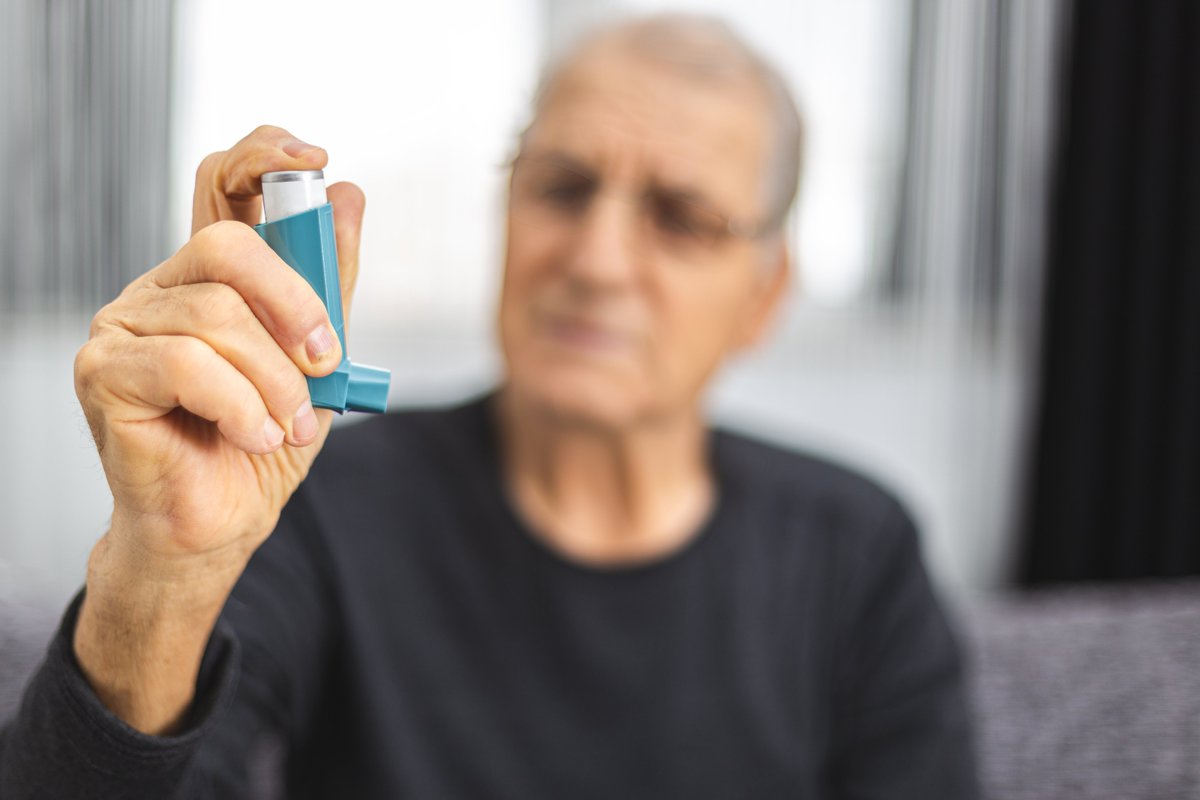
Senior Healthcare with Asthma
Asthma is a disease of the respiratory system that is associated with symptoms such as shortness of breath, persistent cough (especially during sleep, laughter and exercise), or chest tightness and wheezing when breathing. The most common types of asthma are:
- Adult-Onset Asthma.
- Allergic Asthma.
- Asthma-COPD Overlap.
- Exercise-Induced Bronchoconstriction (EIB)
- Nonallergic Asthma.
- Occupational Asthma.
Asthma is less commonly diagnosed in the elderly and often goes untreated because it is often mistaken for the symptoms of other common diseases in old age. Recognizing and treating asthma in the elderly is much more difficult because the pathophysiological mechanisms of asthma in the elderly are different from those seen in young patients with asthma, and these differences may affect the diagnosis and outcome of asthma in the elderly.
For example, asthma in the elderly is often associated with diseases such as obesity, immunosuppression, and chronic obstructive pulmonary disease (COPD), which complicate the diagnosis of asthma in these individuals. Weakening of the muscles of the respiratory tract, stiffening of the chest wall, and flattening of the diaphragm are often part of the aging process that may contribute to asthma.
The volume of the lungs decreases by about 25 to 30 ml each year after the age of 20, which over time causes the chest wall to tighten and the muscles of the respiratory system to weaken.
According to research in the United States, 4 to 13 percent of adults over the age of 65 are affected by asthma, and these people are 5 times more likely to die from asthma than young people.
Asthma is often made worse by environmental factors such as dust, smoke (especially cigarette smoke), pollen, animal dander, and other irritants and allergens. Aging also reduces the function of the immune system against inflammation. This is a major cause of asthma.
Preventing and controlling external environmental factors is one of the most effective ways to control asthma in the elderly. Patient education (especially teaching how to use asthma devices) and medication can also be effective in managing the disease. Before starting any medication, it is best for aging people with asthma to do things like exercise, lose weight and quit smoking. Elderly people with asthma should be seen regularly by a specialist.
Physicians should pay special attention to drug interactions in elderly patients because most of them will have to use several drugs at the same time, especially cardiovascular drugs. One of the most effective drugs for asthma is corticosteroids. But corticosteroids, on the other hand, can cause osteoporosis, congestive heart failure, and high blood sugar in people with diabetes. Stress and depression can also make symptoms worse in the elderly. As a result, in addition to controlling the disease with medication, special attention should be paid to the psychological care of these people.

 Our Location
Our Location +1 (778) 723-6108
+1 (778) 723-6108
Leave Your Comment